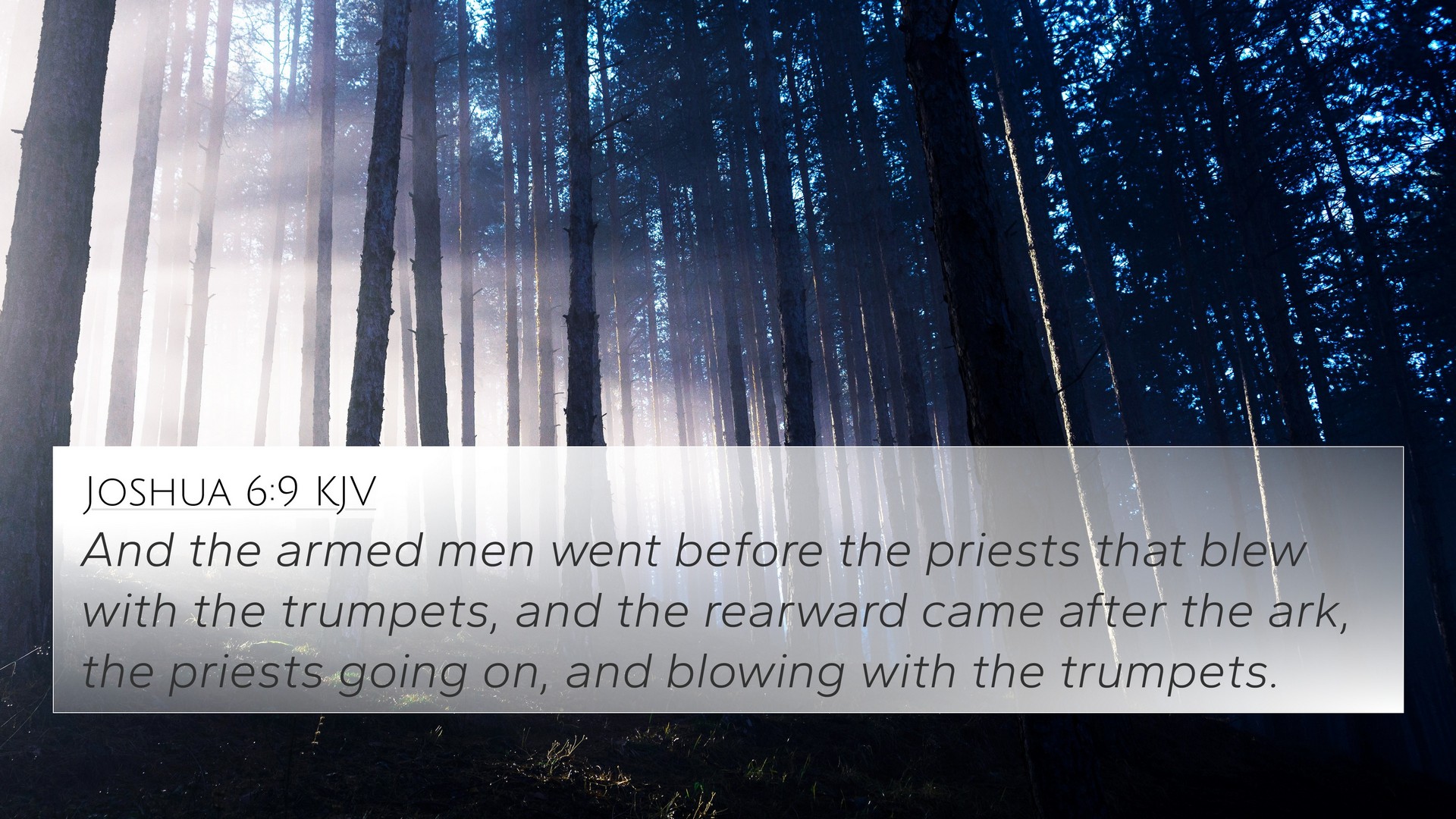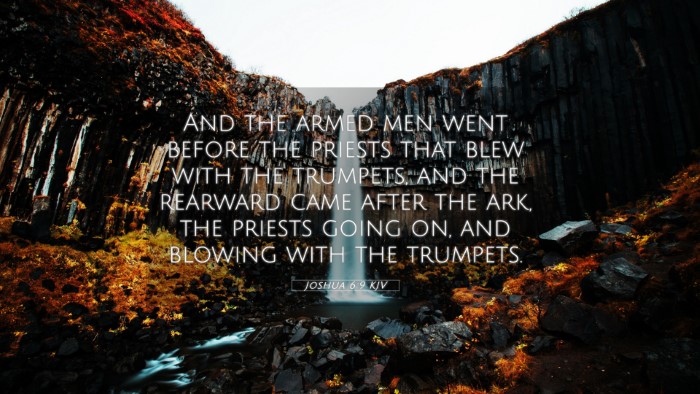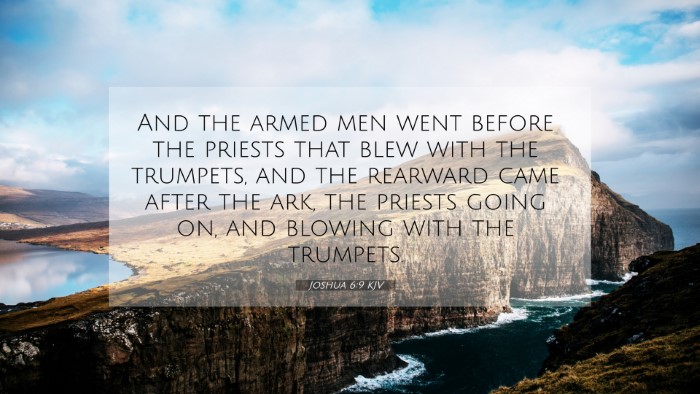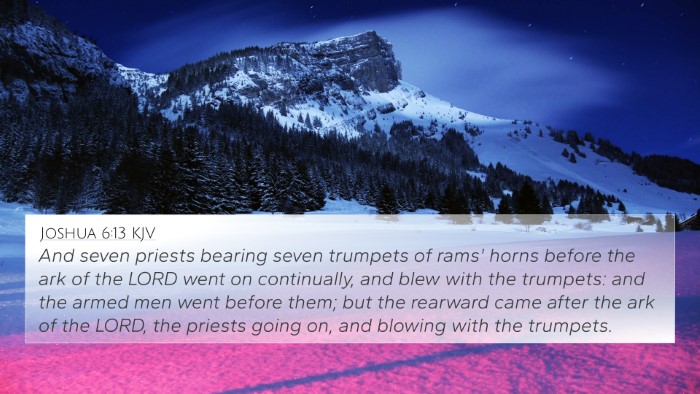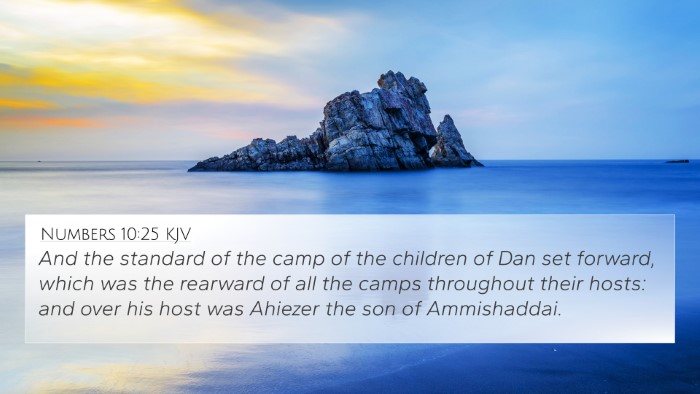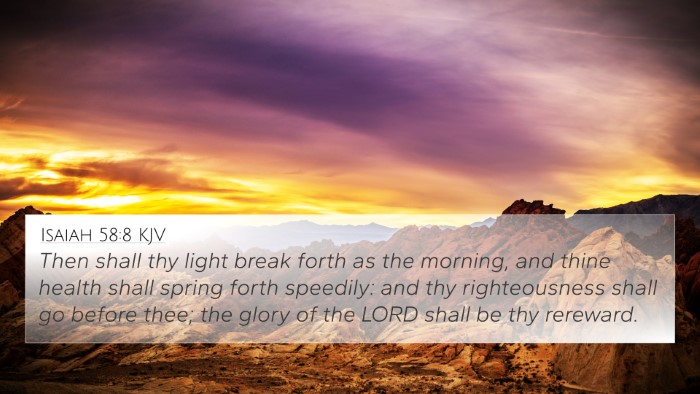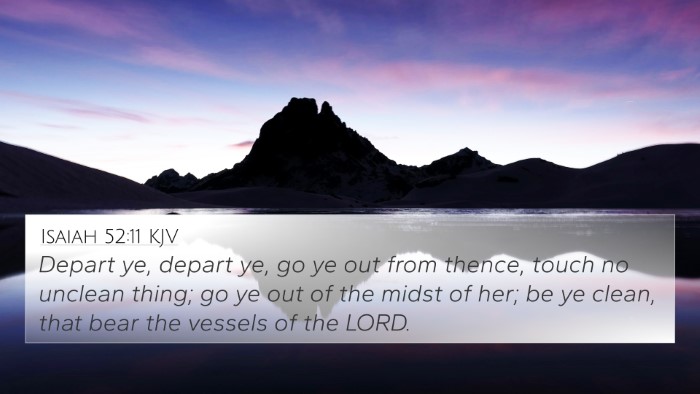Understanding Joshua 6:9
Joshua 6:9 states: "And the armed men went before the priests that blew with the trumpets, and the rearward came after the ark, the priests going on, and blowing with the trumpets." This verse provides a description of the orderly procession of the Israelites as they encircled the city of Jericho, emphasizing obedience, faith, and divine order.
Verse Meaning Summary
This verse captures the essential elements of the Israelites' approach to taking the city of Jericho, showcasing their preparedness, religious fervor, and the divine instructions given to them. The trumpets played by the priests symbolize God's presence and the impending victory.
Key Insights from Commentaries
-
Matthew Henry:
Henry highlights the significance of the priests playing the trumpets as an act of worship and reverence. This ornamentation served not only to rally the troops but to remind them of God's sovereignty in battle.
-
Albert Barnes:
Barnes emphasizes the military discipline displayed by the Israelites. The positioning of the armed men before and behind the Ark of the Covenant underscores the importance of keeping God at the center of their actions as they follow His direction.
-
Adam Clarke:
Clarke notes that the rearward position of the armed men signifies a protective measure, ensuring that the Ark and the priests are safeguarded during this critical operation. This illustrates the theme of divine protection that runs throughout the narrative.
Thematic Connections
The themes present in Joshua 6:9 link to various Bible verses that highlight obedience, faith, and God's faithfulness. Below are some related verses:
- Hebrews 11:30: "By faith, the walls of Jericho fell, after they had been encircled for seven days." This verse explains the faith that accompanied the actions taken by the Israelites.
- Exodus 25:22: "And there I will meet with you, and I will speak with you from above the mercy seat, from between the two cherubim which are on the ark of the Testimony." This emphasizes the sacredness of the Ark of the Covenant.
- 1 Chronicles 15:24: "And Shebaniah, and Jehoshaphat, and Nethaneel, and Amasiah, and Zechariah, and Benaiah, and Eliezer the priests did blow with the trumpets before the Ark of God." This verse connects the act of trumpet blowing with divinely directed worship.
- Joshua 1:9: "Have I not commanded you? Be strong and courageous. Do not be frightened, and do not be dismayed, for the LORD your God is with you wherever you go." This verse relates to the assurance of God's presence during difficult tasks.
- Psalms 20:5: "May we shout for joy over your salvation and in the name of our God set up our banners! May the LORD fulfill all your petitions!" This verse captures the essence of joy associated with God's victory.
- 2 Chronicles 20:21: "And when he had taken counsel with the people, he appointed those who were to sing to the LORD and praise him in holy attire, as they went before the army." Drawing parallels with worship before battle.
- Romans 8:31: "What then shall we say to these things? If God is for us, who can be against us?" This reinforces the notion of God's favor in the fight for victory.
Overview of Cross-Referencing
Cross-referencing Biblical texts allows for a deeper understanding of themes and connections throughout scripture. The inter-Biblical dialogue that occurs when comparing Joshua 6:9 with the verses above showcases a pattern of faith, obedience, and God's commanding presence in the lives of His people.
Tools for Bible Cross-Referencing
- Bible Concordance
- Bible Cross-Reference Guide
- Bible Reference Resources
- Cross-Referencing Bible Study Methods
How to Find Cross-References
Identifying connections between Old and New Testament verses can deepen one's understanding of scripture. Tools such as concordances, study Bibles, and commentaries are invaluable for exploring links between scriptures.
Conclusion
Joshua 6:9 is a powerful reminder of the need for obedience within God's divine plan. By understanding this passage alongside related scriptures, one can appreciate the importance of faith, worship, and the order God requires. The act of cross-referencing enables believers to see the Bible as a cohesive narrative of God's interaction with humanity.
